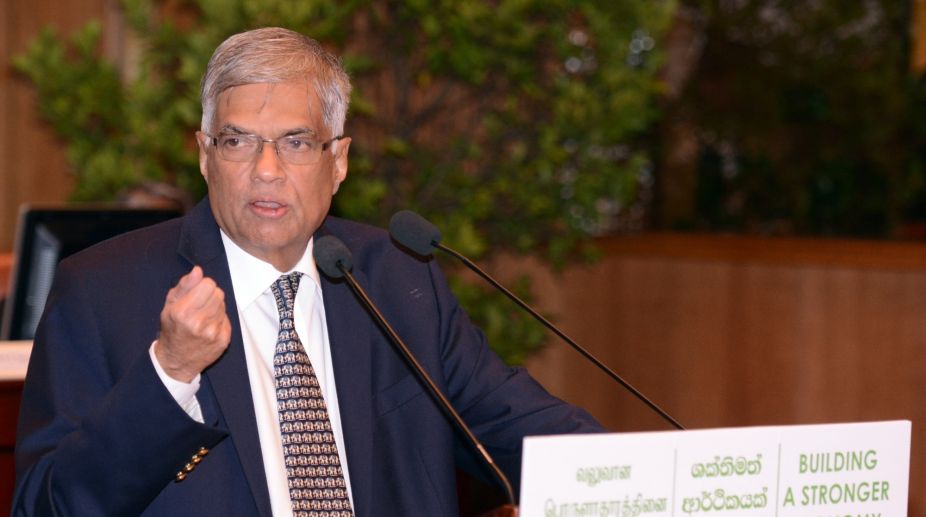Sri Lanka is in turmoil. Ranil Wickremesinghe, Prime Minister in the national unity government comprising the Sri Lanka Freedom Party and the United National Party, is under pressure from the President to quit. Within the UNP also there is a growing demand to oust Wickremesinghe from his position as leader of the party.
President Maithripala Srisena, leader of the SLFP, is engaged in strengthening his party at the cost of the UNP. Meanwhile, 55 MPs have moved a no-confidence motion against the Prime Minister and leveled 14 charges against him. The motion will be debated on 4 April. Fourteen years ago Wickremesinghe was deprived of prime ministership by President Chandrika Kumaratunga of the SFLP by prematurely dissolving Parliament in which the UNP had majority support.
That was a ‘cohabitation’ government of the two premier political parties of Sri Lanka. History is repeating itself as Sirisena is said to be secretly conspiring with former President Mahinda Rajapakse to cut the UNP to size and oust Wickremesinghe from politics.
The national unity government, elected with the popular support of all people, including ethnic Tamils and Muslims, has frittered away the golden opportunity to solve the ethnic crisis that led to the 30-year civil war and provide a secular government. Instead, Sirisena tried to strengthen the SLFP by appointing tainted ministers and cut deals with Rajapakse. The ethnic problem has been pushed to the background.
When Sri Lanka co-sponsored with the USA the UN Human Rights Council Resolution 30/1, there was great expectation the Sirisena government had turned away from the Sinhala Buddhist hegemony policy of the Rajapakse era. A comprehensive transitional justice strategy, including a clearly defined timeline for implementation, is yet to be made public.
The latest progress report on the UNHRC resolution says, “It is with much regret that we must report slow progress in establishing transitional justice mechanism. In the absence of concrete results or publicly available drafts of legislation, it seems doubtful that the transitional justice agenda committed to by the government under this Council’s resolution 30/1 could be truly implemented before our next report in March 2019.”
Authorities in Sri Lanka have not yet demonstrated the capacity or willingness to address impunity for gross violations and abuses of human rights. The confidence level among the minority communities that Sri Lanka will fully implement its commitment under Resolution 30/1 in a faithful manner has touched the nadir. There has been insufficient progress in returning land occupied by the military.
On the contrary, land grabbing by the military continues in the Northern and Eastern Provinces, traditional homeland of the two minority communities. The recent local council election outcome shows the people have lost faith in the unity government which in reality has been a disunited one from its inception.










